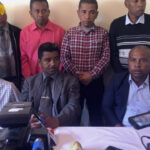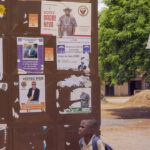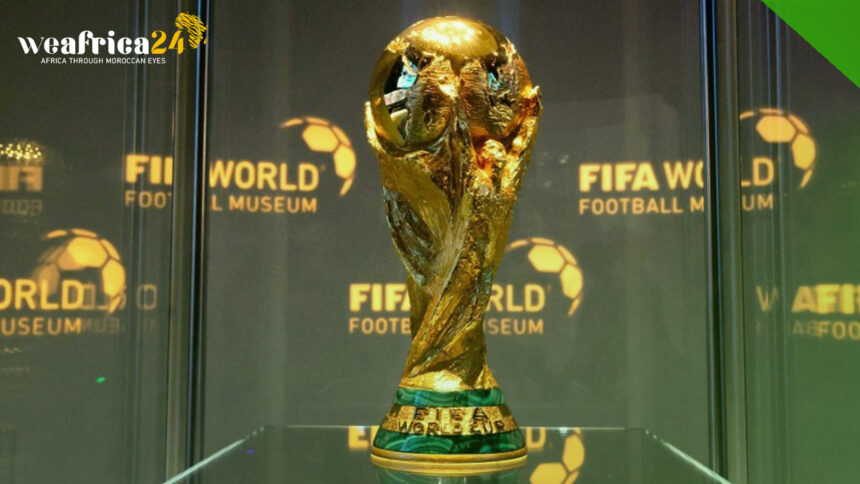As the competition for the 2030 FIFA World Cup hosting rights heats up, the joint bid by Morocco, Spain, and Portugal has the potential to bring about significant benefits for the African continent. The unprecedented collaboration between the three countries could not only boost the economic prospects of Africa, but also stimulate social and infrastructural development, and enhance its global image. This article explores the various advantages that Africa could gain if the Morocco-Spain-Portugal bid emerges as the winner.
2030 World Cup Economic Benefits For Africa
Direct and Indirect Investments:
Hosting the World Cup is a massive undertaking that requires substantial investments in infrastructure, transportation, and hospitality sectors. If the Morocco-Spain-Portugal bid wins, it is expected that a considerable share of these investments will flow into Africa, particularly Morocco, creating jobs and stimulating economic growth. Moreover, indirect investments in sectors such as tourism, retail, and telecommunications would provide a further boost to the continent’s economy.
The Effects of 2030 World Cup on Trade and Tourism:
The 2030 World Cup would draw millions of international tourists to the host countries, with a significant number of them visiting Africa. This influx of tourists would not only benefit Morocco but also neighboring countries, as many visitors would seize the opportunity to explore the continent. As a result, African countries would experience a surge in trade and tourism revenues, which could have long-lasting positive effects on their economies.
Global Sponsorships and Partnerships:
The World Cup is a major global event that attracts numerous sponsorships and partnerships. Winning the hosting rights would provide African countries the opportunity to forge new business relationships and strengthen existing ones. This would help promote African products and services on a global stage, ultimately boosting exports and enhancing economic growth.
Infrastructure Development
World-Class Sporting Facilities:
As part of the bid, Morocco would need to build or upgrade several stadiums to meet FIFA‘s standards. This would result in state-of-the-art sporting facilities that could be used by local and international teams for years to come. These venues would not only improve the standard of sports in the region but also attract high-profile sporting events, further contributing to the continent’s economy.
Transportation and Connectivity during the 2030 World Cup:
To accommodate the influx of tourists during the World Cup, significant improvements in transportation infrastructure would be necessary. This could include the expansion of airports, construction of new highways, and upgrading of rail networks. These enhancements would not only facilitate better connectivity for the World Cup but also create a lasting legacy for the people of Africa, enabling easier movement of goods and people across the continent.
Urban Development:
Hosting the 2030 World Cup would necessitate the construction of new hotels, restaurants, and other amenities in host cities. This would lead to urban development and improved living standards for residents. Additionally, investments in clean energy and water management systems could have long-term positive impacts on the environment and the overall quality of life in the region.
2030 World Cup Environmental Benefits.
Sustainable Development.
The tri-nation partnership will place a strong emphasis on sustainability, ensuring that the 2030 World Cup is a “green” event. Also, this commitment will encourage the use of eco-friendly technologies. In addition to practices in the construction and renovation of stadiums, transportation networks, and other facilities. These sustainable initiatives will serve as a model for future infrastructure projects in Africa, promoting long-term environmental stewardship across the continent.
Renewable Energy
The World Cup will require significant energy resources to power the various facilities, transportation systems, and other event-related operations. This demand presents an opportunity for the host countries to invest in renewable energy solutions. In doing so, they can reduce their reliance on fossil fuels and set the stage for a cleaner, more sustainable energy future for Africa.
2030 World Cup Social and Cultural Benefits
Unity and Pride:
The World Cup is known to bring people together in celebration of sports and friendly competition. The Morocco-Spain-Portugal bid would give African countries the chance to showcase their cultural diversity and hospitality on a global stage. This could foster a sense of unity, pride, and shared identity among African nations, promoting regional cooperation and collaboration.
Sports Development:
Hosting the World Cup would encourage the growth of football and other sports in Africa, as young people would be inspired by the international talent on display. This could lead to increased participation in sports, improved facilities, and better coaching, ultimately raising the standard of sports across the continent.
International Image:
The successful organization of the World Cup would demonstrate Africa’s ability to host major international events, dispelling stereotypes and improving the continent’s global image. This would not only boost the confidence of the people but also attract more international investments and opportunities for collaboration in various sectors.
Cultural Exchange During 2030 World cup:
As millions of visitors from around the world converge on the host countries, they will bring with them their own cultures, languages, and ideas. This cultural exchange will provide opportunities for Africans to learn from others, while also sharing their unique heritage with the global audience. This increased exposure and understanding of diverse cultures will help promote tolerance and foster a more inclusive global community.
2030 World Cup: The Conclusion
The Morocco-Spain-Portugal bid to host the 2030 FIFA World Cup presents a unique opportunity for Africa to capitalize on the immense benefits associated with hosting such a prestigious event. By investing in infrastructure, boosting tourism, and fostering social and cultural development, the continent stands to gain significantly in terms of economic growth, improved living standards, and enhanced global reputation.
A successful World Cup hosted by Morocco, Spain, and Portugal would not only be a victory for the three countries but a triumph for Africa as a whole, as it would showcase the continent’s potential, promote unity, and contribute to its continued development. The positive impact of this collaboration could be felt for decades to come, serving as a catalyst for further progress and prosperity throughout the region.







